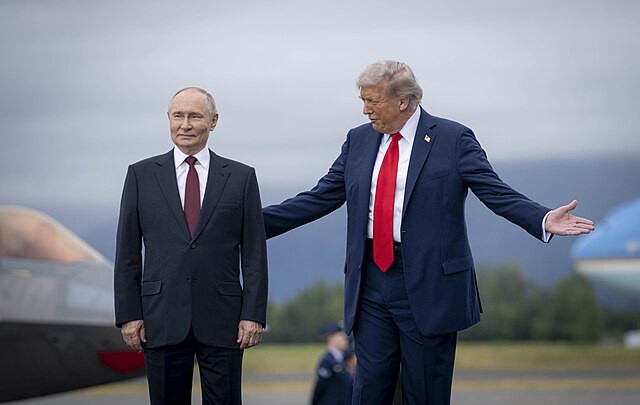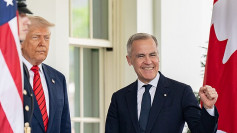Russian President Vladimir Putin vowed Thursday that Moscow would never yield to U.S. pressure following a new round of sanctions targeting Russia's top oil producers, but conceded the measures could inflict limited economic damage. His comments came as China and India-Russia's largest energy customers-began curbing crude imports to avoid secondary penalties under the Trump administration's sweeping restrictions.
This is an "unfriendly act that does nothing to strengthen Russian-American relations," Putin told Russian reporters, referring to sanctions imposed by Washington on Rosneft and Lukoil, which together account for nearly half of Russia's crude exports. "No self-respecting country ever does anything under pressure," he said, though he acknowledged that "some losses are expected."
The measures, unveiled Wednesday by the U.S. Treasury Department, cut off the two oil giants and 30 subsidiaries from the international financial system. Treasury Secretary Scott Bessent said the sanctions were a response to "Russia's refusal to end this senseless war." He added: "Given President Putin's refusal to end this senseless war, Treasury is sanctioning Russia's two largest oil companies that fund the Kremlin's war machine."
The sanctions follow months of diplomatic frustration in Washington over Moscow's deepening offensive in Ukraine. The White House confirmed that President Donald Trump canceled a planned summit with Putin in Budapest, calling it a "waste of time." The Russian leader downplayed the move, saying the meeting would "likely be postponed," while adding, "a dialogue is always better than war."
Putin also accused U.S. advisers of "trying to put pressure on Russia" and warned that the restrictions could raise global oil prices. Brent crude rose roughly 5% within hours of the announcement as traders anticipated disruptions to Russian exports.
In Moscow, the reaction from other officials was sharper. Dmitry Medvedev, deputy chairman of Russia's Security Council and a former president, described the sanctions as "an act of war." Writing on Telegram, Medvedev said, "The U.S. is our enemy, and their talkative 'peacemaker' has now fully embarked on a path of war against Russia."
The ripple effects extended quickly to Asia. Trade sources told Reuters that PetroChina, Sinopec, CNOOC, and Zhenhua Oil-China's four largest state-run energy firms-suspended purchases of seaborne Russian crude amid fears of violating U.S. sanctions. India's Reliance Industries, a major private buyer, also hinted it would cut back imports, saying, "Recalibration of Russian oil imports is ongoing and Reliance will be fully aligned with the [government of India] guidelines."
The European Union also announced a phased ban on Russian liquefied natural gas imports and approved a new loan package for Ukraine secured by frozen Russian assets.
Putin, meanwhile, signaled he was still open to future talks with Washington but insisted Russia would not bend. "It's an attempt to exert pressure on Russia," he said. "But no self-respecting people make decisions under pressure."






